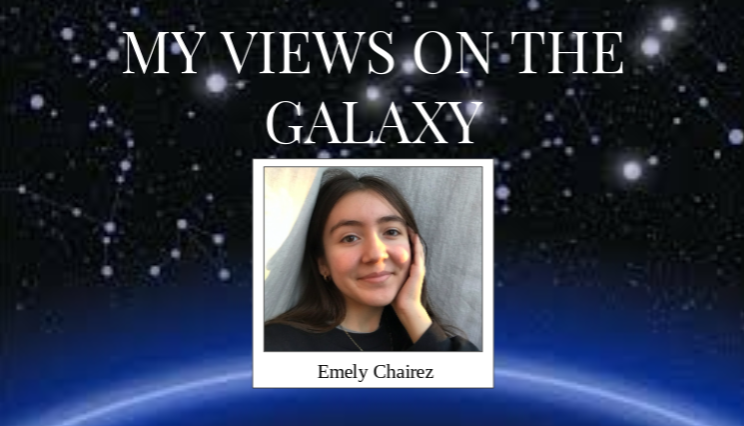The Issues With Disney : Part 2
Nov 9, 2020
Like most girls, when I was younger a part of me wanted to become a princess like in all of my favorite Disney movies. Unfortunately, I realized pretty quickly that that was not going to happen. But that did not stop me from wanting to be a princess or be like the ones I saw on T.V. I wanted to be as beautiful as them, to sing as well as them, and fall in love as they had. But that would never happen because I am real, and they were all just fairytales. They had too tiny waists and too perfect faces. I have a healthy waist and an average face. The princess that I saw on-screen created a standard for me. They made me feel as though I needed to look like them to be desirable. Many other young boys and girls felt the same way. Disney created an unrealistic image as to how we should look and behave. They made me feel as though if I were to ever be in danger, all I had to do was wait for a handsome prince to save me.
In the first part of my series, I discussed the lack of representation for people of color and racism perpetuated through Disney films and films associated with Disney. In the second part of my Disney series, I will be discussing the sexism and unrealistic standards enforced throughout all Disney films.
My favorite Disney princess growing up had always been Belle but a close second was Ariel. I loved the songs in “The Little Mermaid” and absolutely adored the fact that she was a mermaid. Recently, I decided to rewatch one of my favorite films, only to realize that it maybe wasn’t all that great. Don’t get me wrong, the songs are still great and the film is very enjoyable. But when you think about it, isn’t it a little strange that a 16-year-old girl gave up her voice and entire family for a man that she had never actually talked to?
There were several questionable things in the movie. First comes the issue that she was a minor. Most Disney princesses are indeed minors who end up with princes who are most certainly not. For example, Snow White was only 14 yet Prince Florian was 32 and kissed her while she was unconscious and unable to give consent. Ariel was only 16 and Prince Eric was 18. Although there is only a two year age gap between them, that does not change the fact that Ariel was still a minor.
Then comes the issue that Ariel didn’t even know Prince Eric. She thought he was handsome and decided to give up everything for him. It suggests the idea that women should be willing to risk everything for a man or change themselves for one. And said man doesn’t even have to be one that you are on a first-name basis with.
And now onto an issue that has nothing to do with Ariel’s action in the film, but her appearance. She is a mermaid so only her top half is human. She wears a bra and that is it. It clearly displays her waist and slim figure. She has a perfect smile and a perfect face to match. There is nothing wrong with being skinny, but when only the beautiful princesses and princes are shown as skinny, it gives off the impression that to be beautiful means to be skinny. But even then, Ursula, the villain of the film, was a plus-sized sea creature. She was much larger than Ariel and portrayed as being ugly and evil. This is obviously not true because beauty comes in all shapes and sizes.
And Ariel isn’t the only princess who has her issues. All of the Disney princesses are very thin and have no imperfections. And they all get their happily ever after. Coincidentally, most of them only get their happily ever after when they are with a man.
In several instances, the princesses are naive and end up in bad situations where a man needs to come to save them. In ¨Snow White and the Seven Dwarves¨, she eats an apple and is rendered unconscious. But she was saved by a man. In ¨Sleeping Beauty, ¨ Aurora pricks her finger and is also rendered unconscious. But she was saved by a man. In ¨Beauty and the Beast¨, Belle is surrounded by wolves when she is saved by a man (or beast).
It depicts these women to be helpless and uses the classic damsel in distress trope. It shows the women to be incapable of helping themselves in these situations.
Not only are women shown as incapable of saving themselves, but they are also often shown as only being good for loving others and being loved. It’s small things like this that fuel the internalized misogyny that most women have. It makes us feel as though we have to look and act a certain way to be loved or to love because that’s all that we’ll ever be good for, isn’t it?
In Pocahontas, she falls in love with one of the colonizers, John Smith. The colonizers are trying to take all the gold and resources from the Natives. The Natives obviously disapprove of them and most certainly do not want Pocahontas to fall in love with one of them. The whole purpose of the film is to see if Pocahontas’ love is enough to save everyone. But is that really it? She wasn’t strong enough to take them on? She wasn’t smart enough to be able to change their minds about each other or outsmart the colonizers? And the truth is no. The only thing she was portrayed as being good at was loving a man.
Now begs the question, why are women being portrayed so horribly on the big screen?
The answer might actually be because women don’t have much say in these women being put on the big screen. According to an article written by Georgianna E. Preseky for FF2 Media on November 5, 2019, only 1% of the films on Disney+ are directed by women. The statistic is a bit different now since more films have been added to the streaming service. But it wouldn’t change by much. At the time of the release of Disney+, there had only been 21 Pixar films. None of which were directed by women. There have been female writers but they are far and few in between.
Disney clearly has an issue with hiring women in large positions. Disney has been making films since 1937. They have had plenty of time to add women to the production teams. If women were to be placed in important positions, they would be able to ensure that the women in their films would be accurate and unproblematic.
Disney has been improving though, several of their upcoming films and series have better female representation and female directors. But the change is only just now being made. They have had plenty of time to have made the change and should have done it much sooner.
Hopefully, the future of Disney won be as sexist as it is now, both on and off-screen. In the future, I hope girls can look on the big screen and not feel as though they have to fit into these unrealistic standards. Hopefully, someday they´ll be able to look at these princesses and find confidence and reassurance instead of insecurities and self-doubt.





